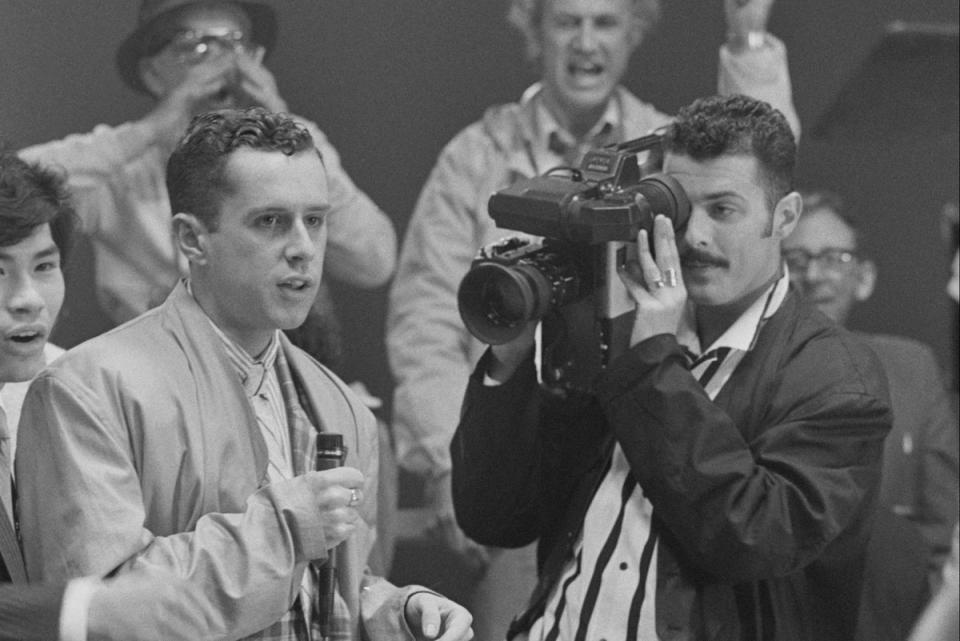Why was ‘Relax’ banned? Frankie Goes to Hollywood biopic in the works

A new biopic about legendary Liverpool band Frankie Goes To Hollywood is in the works, according to Deadline. The news came two days after their first performance in almost 40 years.
The film, titled Relax after the group’s controversial 1983 hit single, is set to star It’s A Sin’s Callum Scott Howells as frontman Holly Johnson.
The pop band on Sunday reunited for the first time since their infamous split in 1987 to play for 25,000 people at a concert to mark the Eurovision Song Contest. National Lottery’s Big Eurovision Welcome concert was held in their home city of Liverpool, which is hosting the song contest this week.

Written by Bernard Rose, who directed the Relax music video, the new film will explore the origins and impact of the song famously banned by the BBC in 1984.
The film is being produced by UK production companies Working Title (Bridget Jones, Les Miserables) and Independent Entertainment. It will be based on Johnson’s memoir A Bone In My Flute.
The Liverpudlian group were among the UK’s biggest pop groups of the 80s before they split acrimoniously after a fight before a gig at Wembley Stadium.
Why was Relax banned?
The group are perhaps best known for Relax, which celebrates homosexual love.
Released in October 1983 and featuring a music video set in an S&M club, the band performed the song on the cult music show Top of the Pops in January 1984.
The BBC soon afterwards banned it from its radio and television broadcasts, deeming its lyrics obscene, specifically the repeated: “Relax, don’t do it/When you want to suck, do it/Relax, don’t do it/ When you want to come.”
The band were intentionally scandalous, too. Among other things, one promotional campaign for the song featured vocalist Paul Rutherford in a sailor cap and a leather vest, and Johnson with rubber gloves next to the phrase “ALL THE NICE BOYS LOVE SEA MEN”, a pun on the song “Ship Ahoy! (All the Nice Girls Love a Sailor)”.
The ban only increased the song’s notoriety. Its ban soon became an embarrassment for the BBC, especially since UK commercial radio and television stations still played it.
Later in 1984, the ban was lifted and Relax featured on both the Christmas Day edition of Top of the Pops and Radio 1’s rundown of the best-selling singles of the year.
During the controversy, the band refused to admit publicly that the song’s lyrics were sexual. However in 1985, with the release of the Welcome to the Pleasuredome album (which included Relax), they dropped any public pretence about the song’s true nature.
“Everything I say is complete lies,” bassist Mark O’Toole wrote in the album liner notes.
“Like, when people ask you what Relax was about, when it first came out we used to pretend it was about motivation, and really it was about shagging.”
The song eventually became one of the most commercially successful records of the 80s, selling around two million copies in the UK alone.
It remained in the UK Top 40 for 37 consecutive weeks, 35 of which overlapped with the BBC’s ban.
In February 1985, the record was awarded Best British Single of 1984 at the Brit Awards, and Frankie Goes to Hollywood won Best British Newcomer.
In the US, the song reached number 10 on the Hot 100 and was voted best song of the year by listeners to LA’s KROQ station.

 Yahoo News
Yahoo News 
